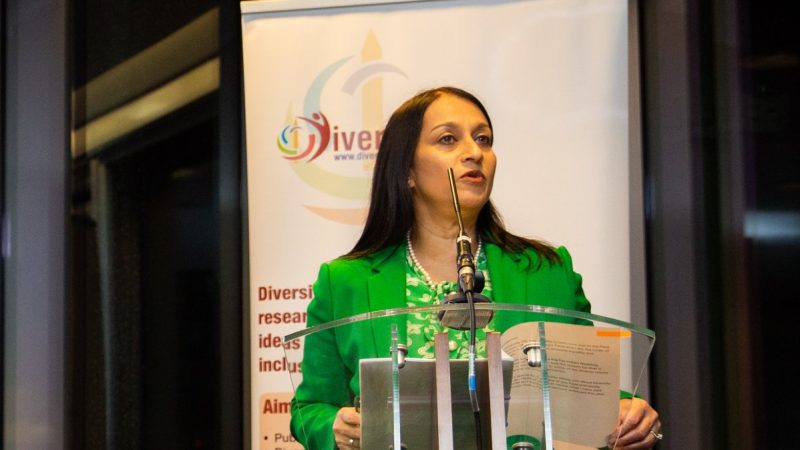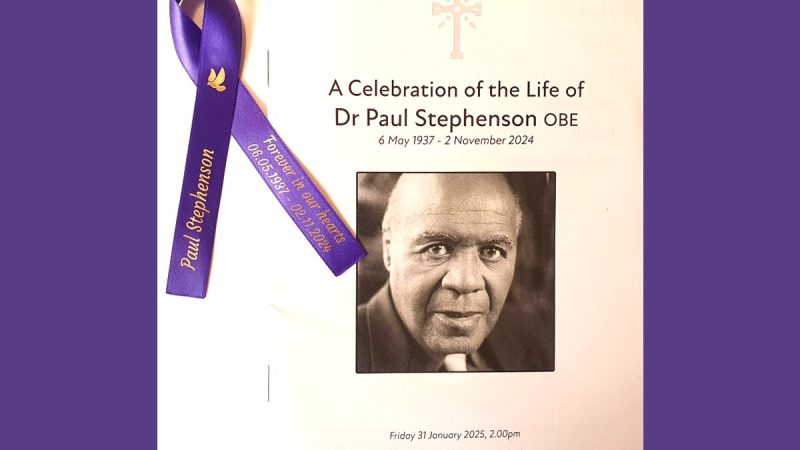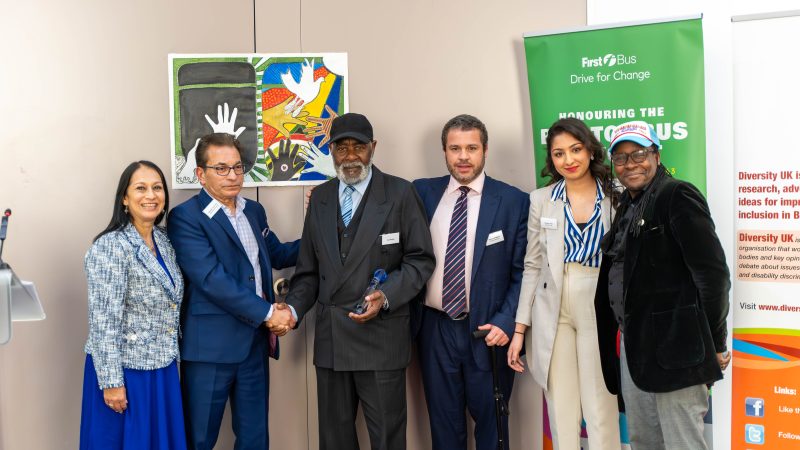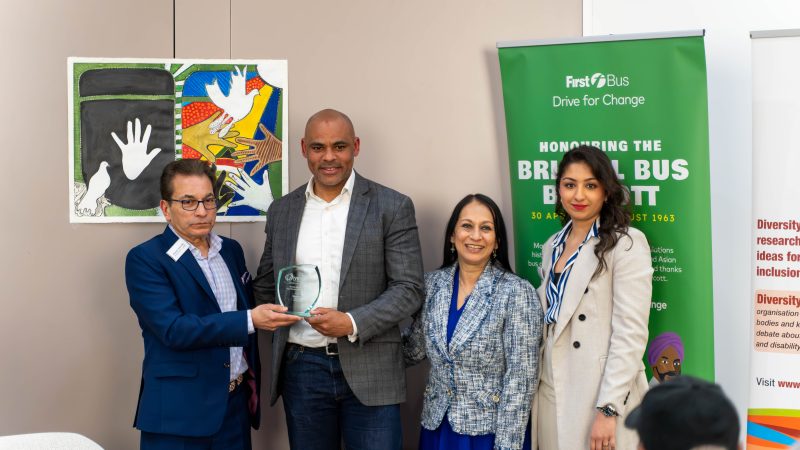Mayor calls on Ofcom to address lack of diversity
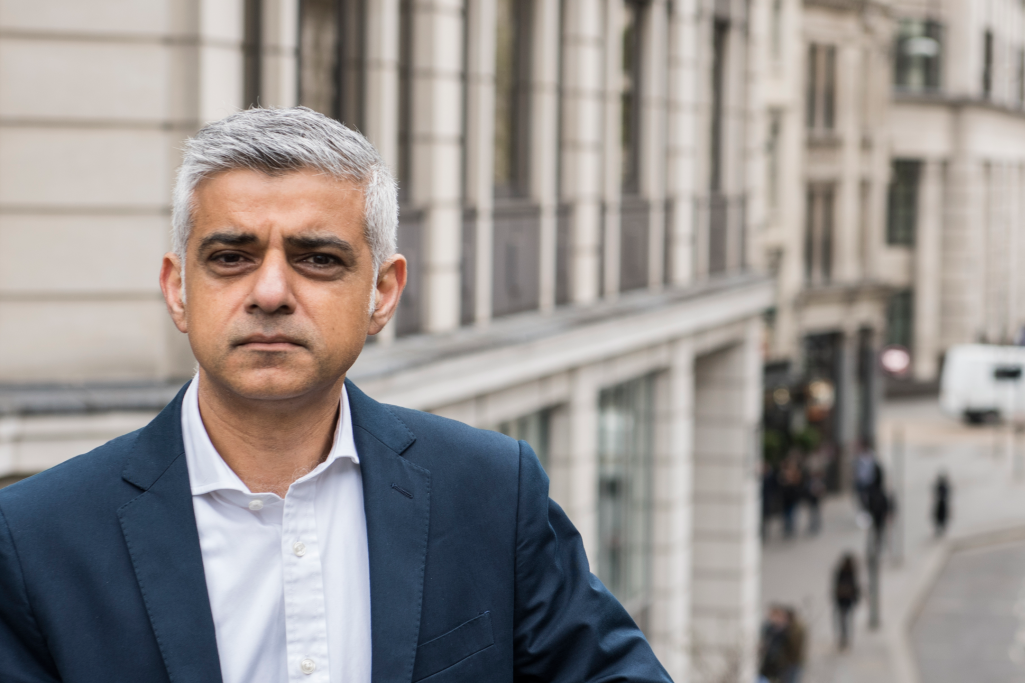
The Mayor of London, Sadiq Khan, has called on broadcasting regulator Ofcom to adopt
new measures to improve the current lack of diversity in the UK’s broadcasting
industry. In a letter to Sharon White, Chief Executive of broadcasting regulator Ofcom,
Sadiq Khan sets out proposals to ensure better BAME diversity both on and
off-screen.
Chief Executive of Ofcom Sharon White has recently criticised British broadcasters
for a “woeful” lack of diversity among their staff and specifically singled out the
BBC for failing to lead the way on this issue.
The Mayor agrees with Ofcom’s assessment that a lack of diversity in broadcasting is
creating a “cultural disconnect” between programme-makers and viewers.
He has joined forces with actor and comedian Sir Lenny Henry, to call on the regulator to provide more robust scrutiny of Black, Asian and Minority Ethnic (BAME) diversity in the sector.
In the letter to Sharon White, Sadiq sets out three proposals to improve BAME
diversity in the industry:
1. Creating an industry-wide definition of a diverse ‘BAME production’
Currently, the BBC, Sky TV, Channel 4 and the BFI all have different definitions of
what they consider to be a diverse production, which can lead to confusion. At
times, the definitions used are so broad that they can be met without a single
person of colour employed either on or off-screen. To resolve this, the Mayor agrees
with Sir Lenny Henry’s proposal for one single, industry-wide definition – which
should be reached in consultation with broadcasters. Sir Lenny’s proposal would
involve a production being required to meet two of the three criteria:
* At least 50 per cent of the production staff measured against cost must be BAME
* At least 50 per cent of on-screen talent measured against cost must be BAME
* At least 30 per cent of senior personnel working on the production must be BAME
2. Ring-fence funds for diversity programmes
Ring-fencing money for BAME production has become more important in recent years,
particularly in London, partly due to an unintended consequence of promoting
regional diversity. Ring-fencing funds to promote regional diversity away from
London increases production in areas that have significantly lower BAME populations.
BAME people represent 10 per cent of the UK workforce and 35 per cent of the
capital’s workforce*. As a result, ring-fencing funds for regions outside London
without also ring-fencing funds for BAME productions diverts budgets, resources and
employment opportunities away from areas where the BAME workforce is high to areas
where it is much lower.
To counterbalance this, the Mayor is calling on Ofcom to retain the regional quotas,
but add a new category for BAME programmes and productions. In this way, Ofcom can
provide clear guidance for broadcasters that promotes both regional and BAME
diversity.
The proposal to ring-fence funds for BAME productions has cross-party support and is
endorsed by many leading industry figures including Sir Lenny Henry, Idris Elba OBE,
Meera Syal CBE and Emma Thompson.
3. Setting clear job targets for broadcasters both on and off-screen
The Mayor believes that measuring progress is essential for improving BAME diversity
across the broadcast industry, so that progress can be properly monitored. He is
calling on Ofcom to adopt a more robust approach to setting targets for BAME
representation and to require broadcasters to provide more consistent and accurate
statistics.
Currently, the statistics provided on BAME employment are inconsistent and, at
times, misleading. They sometimes merge those working in financial and commercial
departments or in overseas departments with those working in the creative or
production, thereby distorting BAME representation. The statistics also give little
detail on BAME representation at a senior level so the Mayor is proposing that Ofcom
set BAME employment targets for broadcasters for both on and off-screen positions.
The Mayor of London, Sadiq Khan, said: “The creative industries are at the heart of
London’s culture and economy and put the UK in a leading position on the global
stage. The world looks to the UK as a beacon of diversity and so it’s vitally
important that the work of our broadcasting industry truly reflects the lives and
realities of our entire population.
“More importantly, Ofcom should hold broadcasters to account and ensure that BAME
people are properly reflected both on and off-screen through jobs in production and
by taking up senior editorial and commissioning positions within the industry.
“This year marks the 30th anniversary of Black History Month in the UK. BAME
communities contribute so much to the life and soul of London and the whole of the
UK. It’s time our broadcasters step up to the plate and redouble their efforts to be
properly representative of the UK population as a whole.”
Actor and Comedian Sir Lenny Henry, said: “The Mayor of London’s words are timely;
we live in a world where matters of race and ethnicity are down played in order to
fulfil the more abstract ‘creative diversity’.”
“We all know that ‘if you can’t see, you can’t be’ - Mr Khan’s words are a direct
plea to Ofcom to put pressure on broadcasters to represent minorities both on screen
and behind the camera. Only then will our UK TV and Film industries be truly
representational.”
The creative industries, including broadcasting, are a major employer in the
capital, providing one in six jobs and generating £42bn for London’s economy.
The Mayor has made reducing inequality a key priority for his Mayoralty and
appointed Matthew Ryder as Deputy Mayor for Social Integration, Social Mobility and
Community Engagement to drive forward a programme of activity which aims to reduce
inequality in the capital and to help Londoners lead truly interconnected lives.
As well as supporting Sir Lenny Henry’s campaign to improve BAME diversity in
broadcasting, the Mayor supports Film London, which works to ensure the city’s
screen industries are as diverse as the city itself. To this end, the agency’s short
film scheme ‘London Calling’ ring-fences funding for BAME-led filmmaking teams,
while Film London’s feature film initiative, ‘Microwave’, has a commitment to
ensuring 50 percent of teams longlisted for the scheme have a BAME writer, producer
or director.
Sadiq has also recently published his Vision for a Diverse and Inclusive City for
consultation, the results of which will inform the development of the Mayor’s new
Diversity and Inclusion strategy, due to be published in the New Year. This strategy
will ensure that the GLA promotes equality for groups protected by the Equality Act,
as well as other groups that face disadvantage.

